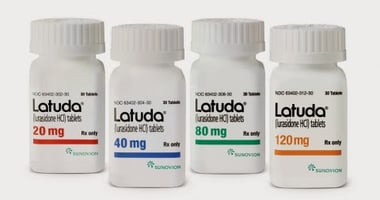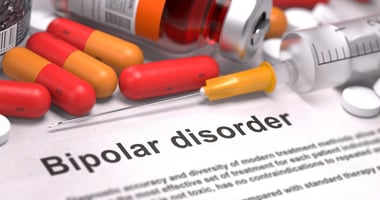In July, lurasidone—a dopamine receptor 2 (D2) blocker originally approved to treat...
FDA Approves Latuda for Treatment of Youth With Bipolar Depression
 |
Latuda is already approved as a monotherapy or adjunctive therapy with lithium or valproate for the treatment of adults with bipolar depression. The medication is also approved for the treatment of adults and adolescents (ages 13 to 17) with schizophrenia.
According to a press release by Sunovion Pharmaceuticals, which manufactures Latuda, the approval for the expanded indication of Latuda was based on data from a six-week, phase 3 clinical study of 347 children and adolescents with bipolar depression. After six weeks, the participants who received once-daily Latuda (20-80 mg/day) showed statistically significant improvements in depression symptoms compared with those taking placebo—as indicated by change from baseline on Children’s Depression Rating Scale, Revised (CDRS-R) total scores and Clinical Global Impression-Bipolar Version, Severity of Illness (CGI-BP-S) depression score.
The medication was generally well-tolerated, with nausea, weight gain, and insomnia being the most common treatment-related adverse effects.
“The FDA approval of this medicine for the treatment of pediatric patients with bipolar depression is significant for several reasons,” said Robert Findling, M.D., M.B.A., the director of child and adolescent psychiatry at the Johns Hopkins University School of Medicine in Sunovion’s press release. “First, it is a new treatment option for this vulnerable group of young people. Also, it is the first single-agent formulation to receive regulatory approval for this pediatric indication.”
To read more about this topic, see the Psychiatric News PsychoPharm article “Lurasidone May Work Better as Monotherapy in Older Patients With Bipolar Depression.”






